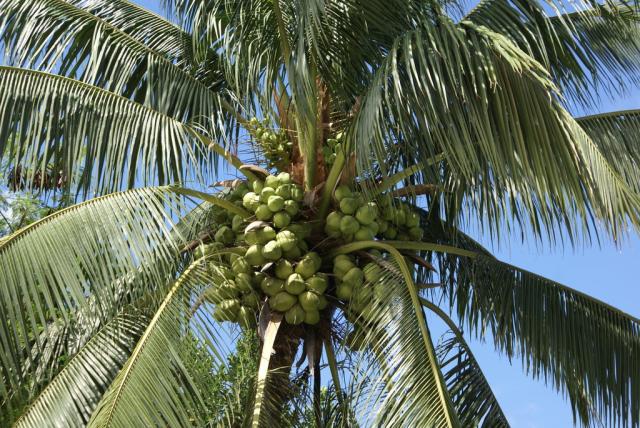There’s always something new and trendy to talk about in the food world and coconut palm sugar (not to be confused with just plain old palm sugar, which can come from dates or may be a mix of coconut palm sugar and just plain old white sugar) is making the airwaves as a new alternative sweetener. Touted as being low carb with a great flavor profile, should you be taking notice?
Health care experts already warn us about consuming too much sugar and most of us would agree that when it comes to the sweet stuff, moderation is a good thing. From increasing the risk of diabetes to fueling weight gain, sugar also plays havoc with our immune system, causes outbursts in susceptible children and to boot, it’s addictive. Besides the fact that it tastes good, there really isn’t much positive to say about sugar. The quest then, for alternatives, of which just one is coconut palm sugar.
Pure coconut palm sugar is a natural product derived from the nectar of the flower in coconut palm trees, more properly known as the coco nucifera plant. Is coconut palm sugar really healthier than table sugar? The answer to that involves a small technical explanation, which unfortunately can’t be avoided. Here goes…
When we refer to sugar, most of us mean table sugar (sucrose, comprised of two sugar molecules – fructose and glucose – in a ratio of 1:1). Glucose is well known as one of the most basic carbohydrates. Plants produce it through photosynthesis and store it as starch. Humans use it as fuel or store it as glycogen. We can even manufacture glucose when our blood levels get too low. Fructose, on the other hand, has a lower glycemic index (meaning it has less of an impact on blood sugar levels) than glucose, but some people have a harder time digesting it, which may lead to bloating or diarrhea. Some experts argue that fructose is a better choice for individuals who are diabetic or have insulin resistance because it’s sweeter, encouraging people to use less and because of its lower glycemic value. While this is true, fructose tends to boost rather than suppress appetite. And, since it is processed almost solely by the liver, it’s thought that it can contribute to non-alcoholic fatty liver disease over time. Fructose may also play havoc with your triglyceride and very low density lipoprotein (VLDL) levels, leading to heart disease. It also contributes to gout and insulin resistance. Because of the way it is metabolized by the body, fructose is something you should try to avoid or consume in very small quantities.
Like table sugar, coconut palm sugar is largely sucrose-based.. This means that its glycemic index as well as any associated health risks will be similar too. So much for the health claims. Additionally, it’s claimed that since the sweetener is derived from the sap of the flower that it is then unable to produce coconuts. No more coconut meat, coconut flour, coconut oil or coconut water, making it what many would consider an unsustainable practice.
You’ll find lots of websites promoting the advantages of coconut palm sugar, especially relating to its low glycemic index. In reviewing these sites, read with a critical eye. My research shows that the only real advantage it holds over table sugar is that it is less processed and contains a better concentration of trace minerals.
The take-away? Coconut palm sugar is essentially expensive table sugar with some trace minerals thrown in. If you like the taste, then go for it. But know that you are consuming sugar and not a healthy alternative. What do you think?




